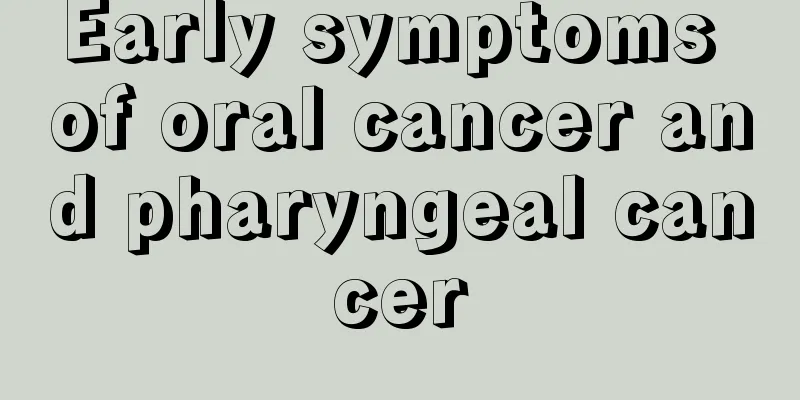What are the symptoms of excessive lung and stomach fire?

|
Each organ in the human body has its specific function. The lungs are mainly responsible for helping the body breathe. Many patients who often cough have problems with their lungs. The stomach is used for digestion, and food in the human body needs to be digested through the stomach. The lungs and stomach are both very prone to symptoms of getting angry, and if the lungs and stomach are too angry, it will cause damage to the organs. So, what are the symptoms of excessive fire in the lungs and stomach? Lung heat and stomach heat are both heat syndromes, which refer to symptoms caused by the body's hyperactivity of functional activities due to exposure to heat evil, or excess of yang and deficiency of yin. It is mostly caused by external heat evil; or cold evil turning into heat entering the body; or due to excessive emotions, which turn into heat; or due to improper diet, which accumulates into heat. Children grow up during the day and grow up at night. They are full of vitality. Yin is often insufficient and Yang is often excessive, which leads to excessive Qi. Excessive Qi can easily turn into fire, which can easily lead to lung heat and stomach heat. Common symptoms of lung and stomach heat include: Aversion to heat and preference for cold, thirsty and preference for cold drinks, irritability and restlessness, yellow and thick phlegm and mucus, short and red urine, dry and dry stools, red tongue, and yellow and dry tongue coating. Lung heat: Common symptoms include chills and fever, cough and chest pain, little and sticky sputum, difficulty breathing, dry mouth and throat, thin yellow tongue coating, and a floating, slippery and rapid pulse. Stomach heat: This type of patients usually like to eat fried and high-calorie foods, and love to eat meat. Common symptoms include bad breath, dry mouth, yellow urine and hard stools, red tongue with yellow coating, severe throat pain, difficulty swallowing, red and swollen tonsils, accompanied by fever, general malaise, thirst, constipation, red tongue and yellow coating. Symptom difference The difference between heat syndrome and cold syndrome: Cold is the main air in winter, so cold diseases are more common in winter, but can also be seen in other seasons. External cold is the cold evil that causes human illness. Injury to the skin surface is "typhoid fever", direct attack to the internal organs is "internal cold", and it can also be combined with other evils to cause diseases such as wind-cold, cold-dampness, etc. Internal cold is the deficiency of yang energy in the internal organs, which is mainly caused by insufficient kidney yang. The general symptoms are aversion to cold, fever, no sweating, stiff neck and head pain, body pain, white tongue coating, and a floating and tight pulse. The specific manifestations are: (1) Typhoid fever: Exogenous cold pathogen invades the skin surface, causing poor circulation of the Ying and Wei meridians, obstruction of the pores, aversion to cold, fever, no sweating, stiff neck and head pain, body pain, white tongue coating, and a floating and tight pulse. Treatment should be pungent and warm to relieve exterior symptoms. (2) Cold arthralgia: Cold pathogen damages the meridians or tendons, bones, and joints, causing severe pain. The pain is localized, and the limbs are stiff and difficult to bend and stretch. The pain is relieved by heat but aggravated by cold. Treatment should be to warm the meridians and dispel the cold. (3) Cold in the middle of the body: The pathogenic cold directly damages the interior of the body, causing abdominal pain, diarrhea, intestinal rumbling, vomiting of clear water, or shivering, cold limbs, and weak pulse. The treatment should be to warm the middle and dispel the cold. (4) Internal cold: When Yang Qi is weak, the functions of the various organs decline and the symptoms of Yang deficiency appear, such as fear of cold, cold limbs, shortness of breath, blue lips, abdominal distension and loose stools. Poor appetite, cold pain in the waist and spine, frequent urination, impotence in men, and thin vaginal discharge in women. : |
<<: Do girls grow taller during menstruation?
>>: Achilles tendon rupture symptoms
Recommend
Which department should I go to for edema
If it is edema, you should choose the department ...
It turns out that fungal esophagitis is related to these four factors
Fungal esophagitis is a special type of esophagit...
Why do silver earrings turn black?
Silver earrings are a common type of jewelry. In ...
Treatment of hyperthyroidism insomnia
Because patients with hyperthyroidism have an ove...
What to eat to relieve dry stool
In daily life, symptoms of constipation often occ...
What medicine should I take for gum pus
Gingival abscess is a very serious condition, whi...
What are the dangers of dyeing hair
I believe many people have the experience of dyei...
Can tap water be drunk directly?
"Water is the source of life." We have ...
What are the symptoms before death from nasopharyngeal cancer
What are the symptoms of nasopharyngeal cancer be...
What can’t you eat for vascular headaches? What are the effects?
Eating is the most direct way for the human body ...
Key points for diagnosis of acute orchitis
Key points for diagnosis of acute orchitis. Nowad...
What are the usage and dosage of rose essential oil
Who knows that nowadays we are getting busier and...
So that acidic body can effectively prevent skin cancer
Although the incidence of skin cancer is relative...
What are the age limits for dental expansion?
A dental expander is a device used to straighten ...
Why is pancreatic cancer the king of all cancers
Pancreatic cancer is known as the "king of a...









